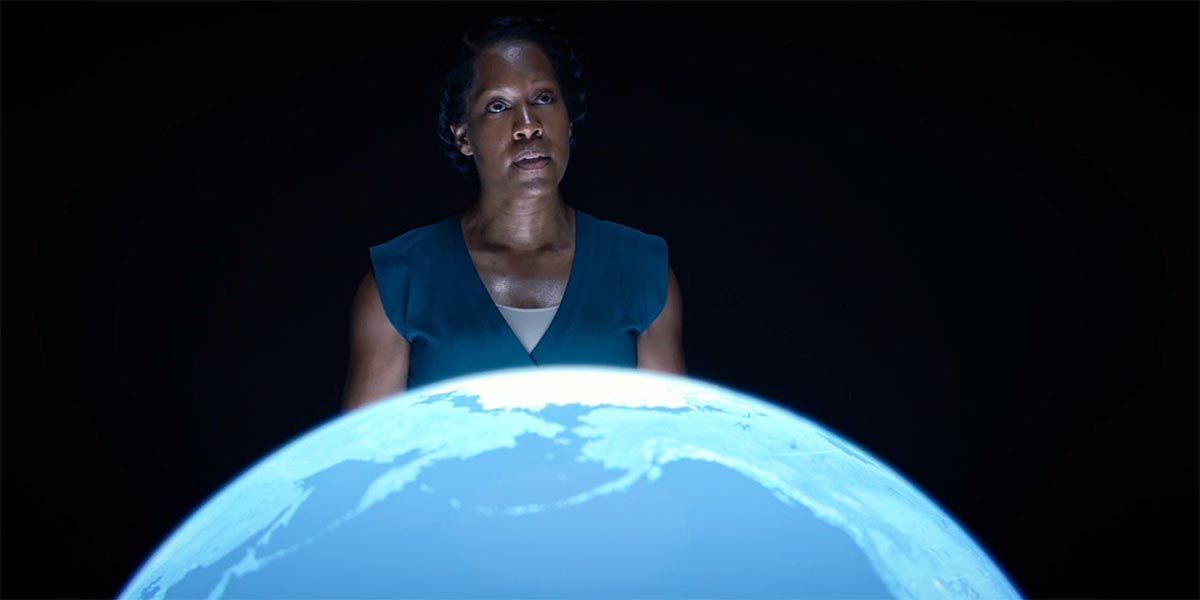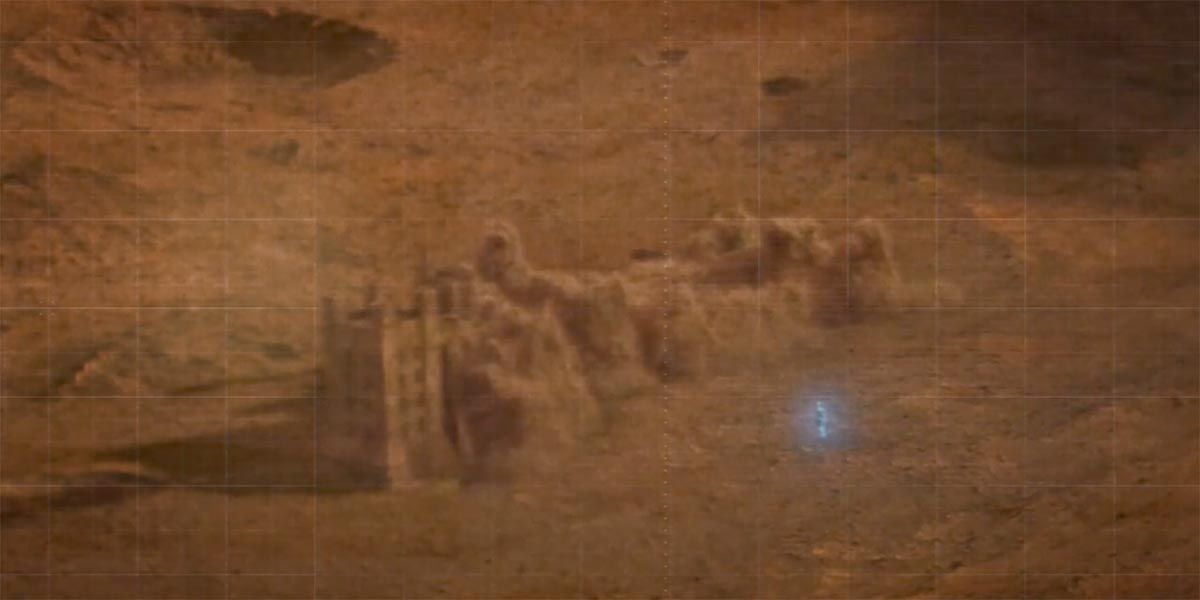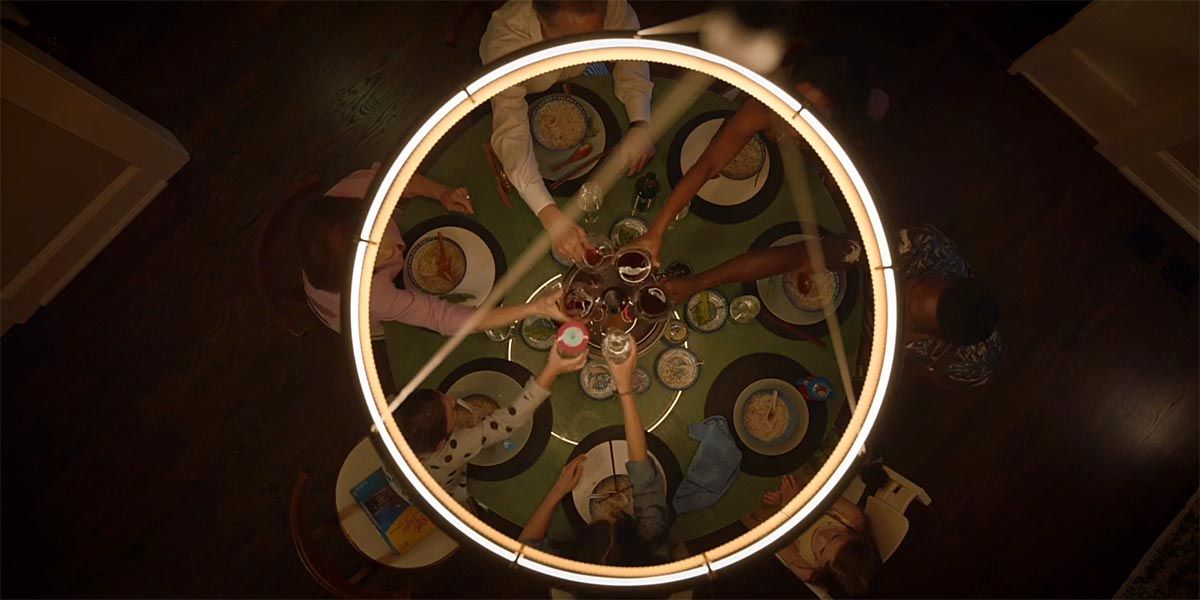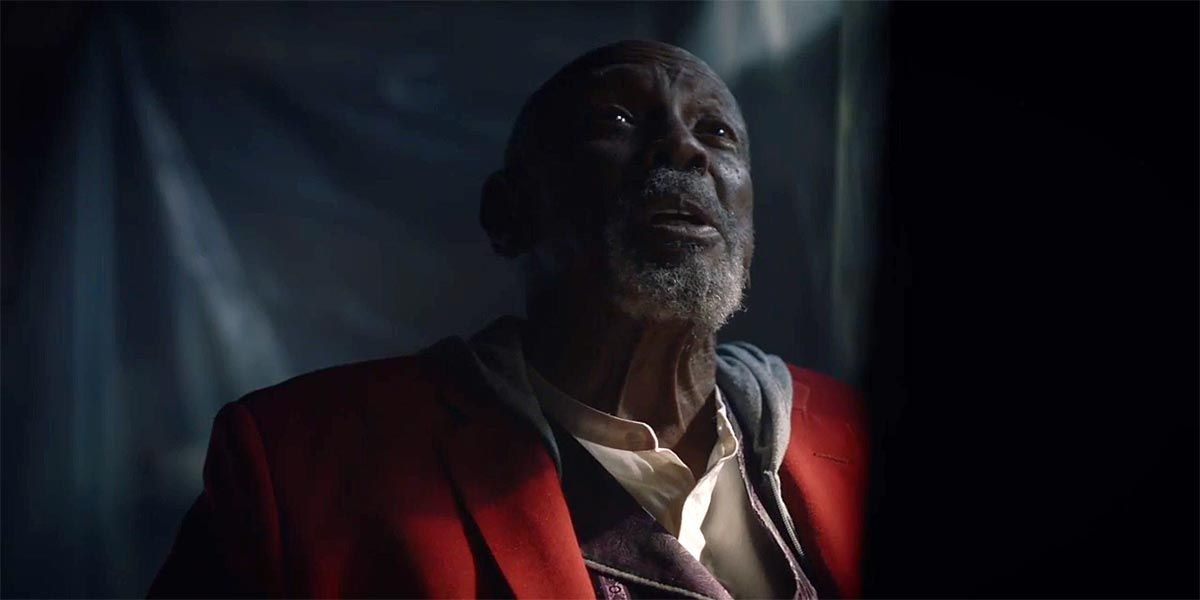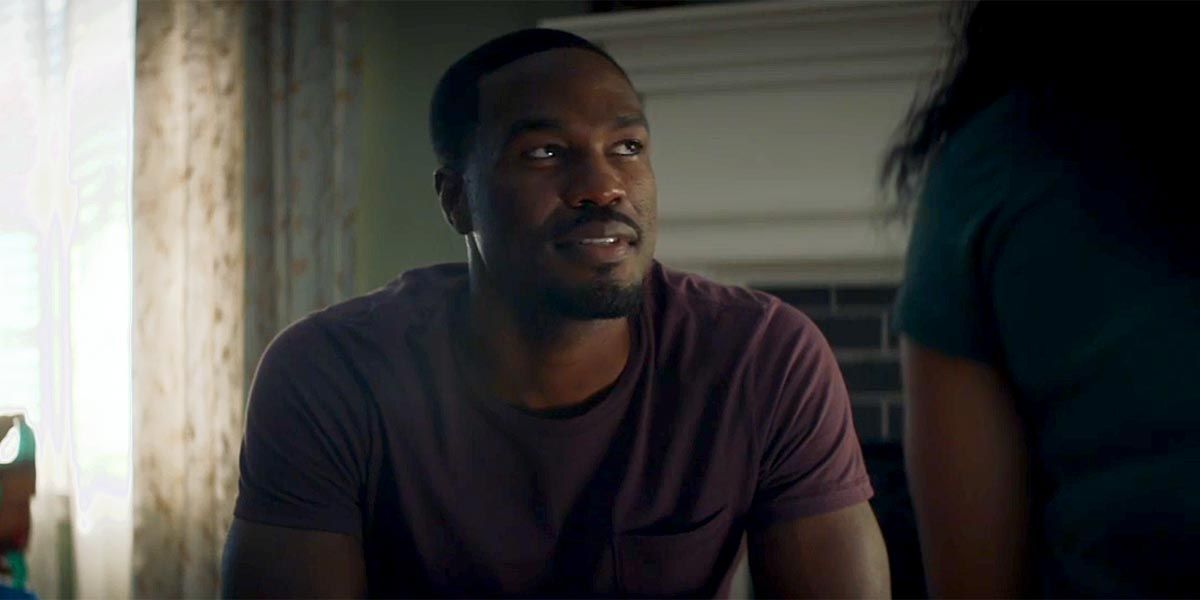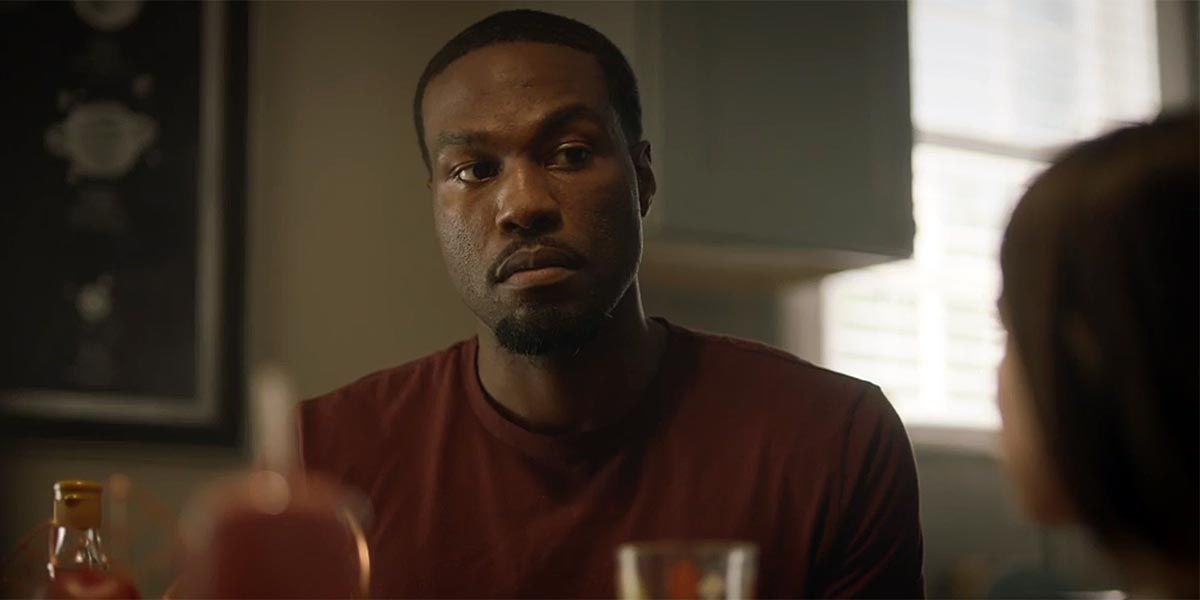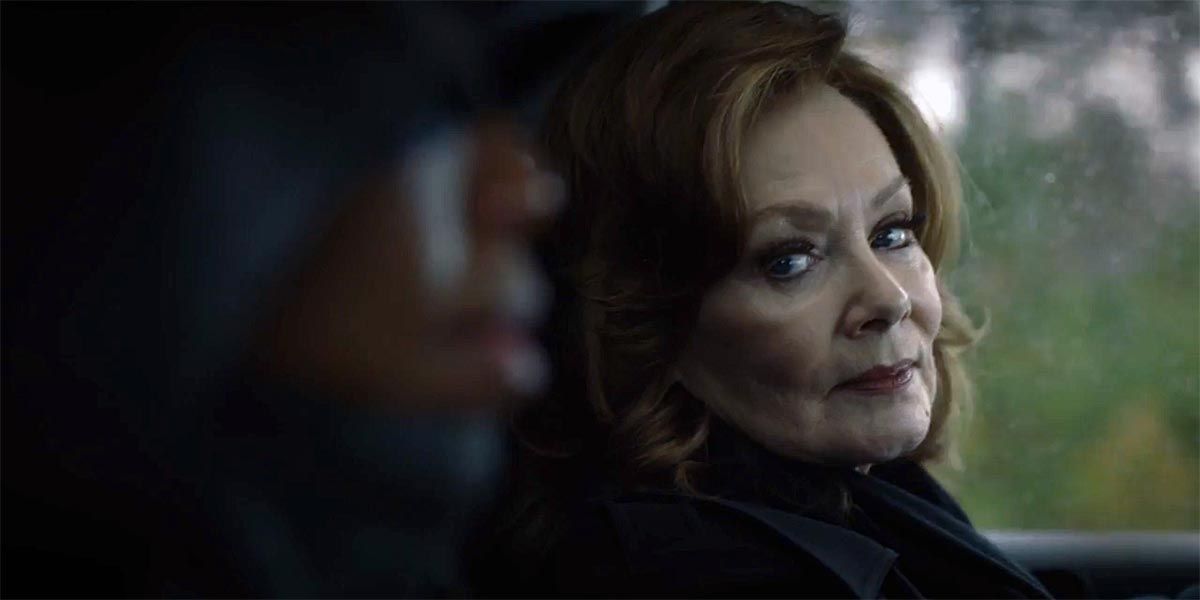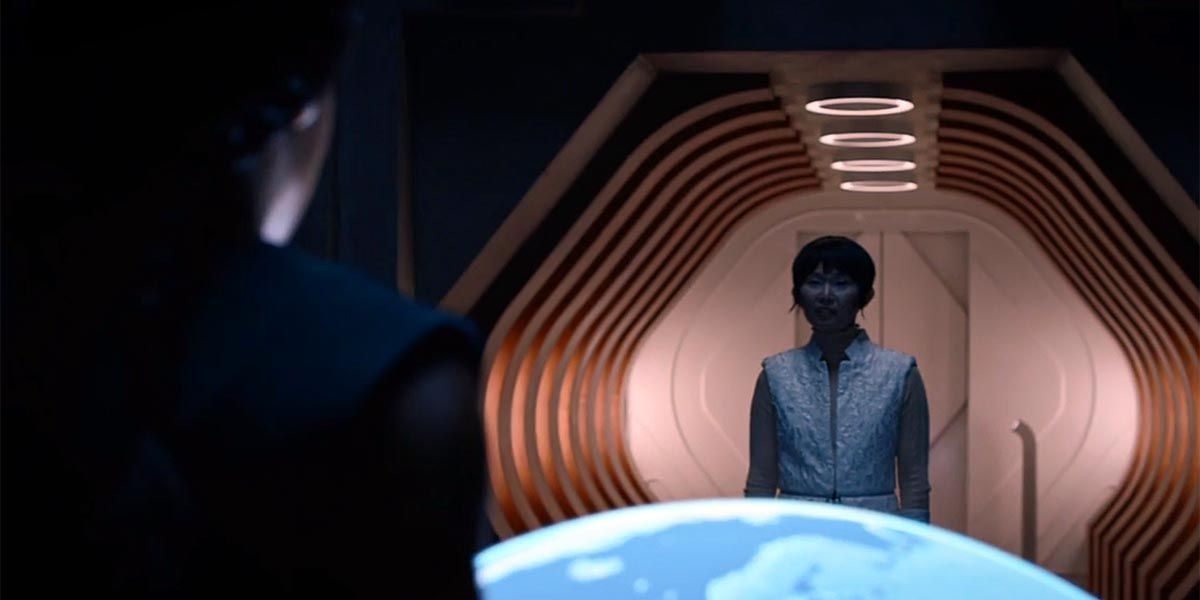WARNING: The following contains major spoilers for the seventh episode of Watchmen, "An Almost Religious Awe," which premiered Sunday on HBO.
There was early speculation that one of the characters on HBO's Watchmen was secretly Doctor Manhattan, the godlike being who played a central role in the comics series, and whose actions shaped the world of the television sequel, set more than three decades later. Any notion that the blue, omnipotent superman was walking around in human form was dismissed in the first episodes, and any such theory faded away as the drama focused on three primary mysteries: the identity of Will Reeves; the whereabouts of Adrian Veidt; and the plot by the murderous white supremacist group the Seventh Kavalry. That is, until the seventh episode, in which it's revealed in a moment of panic and violence, that Manhattan has been in Tulsa, Oklahoma, all this time, and what's more, he -- and all of humanity -- is in danger.
Doctor Manhattan is none other than Cal Abar (Yahya Abdul-Mateen II), the loving husband of protagonist Angela Abar (Regina King). Lady Trieu (Hong Chau) is in on the secret, informed by Will Reeves (Louis Gossett Jr.), whose source of the knowledge is not yet known. Worse still, the Seventh Kavalry knows, too, and plans to destroy Doctor Manhattan within the hour and, somehow, "become him." That provides (appropriate enough) a ticking clock for Angela, who has no choice but to confront her husband, and try to gently ease Manhattan to come to the surface his consciousness. When that doesn't work, she cracks open Cal's skull and removes Doctor Manhattan's symbol from his forehead, and seemingly accomplishes her goal.
It's a shocking turn of events, and not only for the brutality of that scene. Series creator Damon Lindelof and his writers have been masters of misdirection, leading the audience to focus on those three other mysteries, largely unaware there was a fourth. However, armed with the knowledge that Cal Abar is Doctor Manhattan, we can look back at previous episodes, and discover clues -- along with elements that may not be clues, but now certainly look like they are.
Episode 1: Footage of Doctor Manhattan on Mars
The series cleverly employs transition shots to great effect, such as when the camera pans up from the raid of the Seventh Kavalry farm to the night sky, which then gives way Adrian Veidt (Jeremy Irons) on his "country estate." It's the first hint that Ozymandias isn't on Earth. However, there's another subtle transition earlier, as we see satellite footage of Doctor Manhattan on Mars on the television of the wounded police officer's wife before the scene moves on to Angela giving a baking lesson at her adoptive son's school.
At the time, the footage likely raised few eyebrows, because of course the inhabitants of Watchmen's world would be interested in the activities of this all-powerful figure, who shaped history, culture and politics for decades, before leaving Earth some 34 years ago. But now we have to suspect there was something more than a little world-building at work here.
Episode 1: The Light in the Abars' Dining Room
Later in that same episode, Veidt announces to his servants that he's writing a play, "The Watchmaker's Son," which we knew to be the story of Jon Osterman, aka Doctor Manhattan. The scene transitions from their clinking champagne glasses to the dining room of the Abars, who are entertaining Police Chief Judd Crawford (Don Johnson) and his wife Jane (Frances Fischer). It's an unusual shot from overhead, through the circular ceiling light, which frames the table and plates below.
On first viewing, that composition seemed intended to mimic the face of a clock; we hear ticking throughout the scene, presumably signifying something big is about to happen (and it does, as Judd is killed, setting the plot into motion). However, it's not a clock. It's a recreation of the Rutherford model of an atom. There are seven plates, representing the electrons, and the serving bowl at the center standing in for the nucleus.
Episode 2: Will Reeves' Taunt
After allowing himself to be apprehended by Angela, the 105-year-old Will Reeves confesses to a disbelieving Angela that he killed Judd, only to tease that he employed psychic powers. "Maybe I'm Doctor Manhattan," he says with a twinkle in his eye, giving birth to the notion -- both on the series and among fandom -- that the character could be in disguise. However, Angela refuses to entertain the idea, saying, "He lives on fucking Mars, and he can't do that -- look like us." But will scoffs, running down the litany of other extraordinary things Manhattan can do -- so why couldn't he change the color of his skin?
It's a fun scene, but interesting for a couple of reasons, not the least of which may be why the drama would introduce that idea unless it planned to circle back around to it; it's Chekhov's gun. The other, perhaps even more telling, is how Angela would be so certain what Doctor Manhattan can and can't do?
Episode 2: 'He's On Mars'
Later in that same episode, Cal questions why Angela didn't arrest the old man; after all, he said that he killed Judd. "He also says that Doctor Manhattan can pretend to be human," she replies. But it's Cal's response that may be more informative, at least with the luxury of hindsight.
"No, he can't," Cal says, shaking his head. "He's on Mars, so ..." It's not so much his words, but his body language -- the eye roll, followed by the downcast look, almost like a child reciting something learned by rote. He's been told this, again and again, and so his response is automatic, mechanical.
Episode 2: American Hero Story
American Hero Story, the sensationalized docu-drama about the Minutemen, consumes the attention of many of the secondary characters on Watchmen, and why shouldn't it? Never mind that it's, as FBI Agent Petey says, "garbage," and littered with historical inaccuracies; it has sex, brutal violence and scandal! It gets its primary focus, Hooded Justice, wrong, but we have to wonder whether this fictionalized version of the original costumed vigilante isn't also a stand-in for other characters.
Take, for example, the scene from AHS shown in this episode, in which the fictional Hooded Justice addresses this angry, violent other person he saw when he looked in the mirror. "I never felt comfortable in my own skin," he laments, "so I made a new one, and when I slipped it on, he and I became one."
Considering one of Watchmen's primary themes is duality, those remarks can apply to any number of characters. However, Hooded Justice's words play out as voiceover as Angela drives to the Crawford house. What seemed initially to be directed at her, and her Sister Night alter ego, or else her discovery in Judd's closet now takes on another meaning.
Episode 4: 'Now He's Nowhere, Again'
When the Abar children get into an argument about whether "Uncle" Judd went to heaven after his body was blown up in a suicide-bomber attack at the children, Cal steps in to diffuse the situation. However, if anyone was expecting reassuring words about the afterlife tailored to young children, they didn't find it here. Instead, Cal provides a surprisingly cold assessment of existence. "Before Uncle Judd was born, he was nowhere, he didn't exist," he says. "Then he was a baby, then he was a child, then he was an adult. And then he died. Now he's nowhere, again."
It's a curious explanation, but despite Angela patterning her alter ego after a gun-toting nun, we don't know whether they're atheists or people of faith. For that matter, we don't know yet what effect the existence of a godlike being has on religion. But, in retrospect, Cal's comments certainly evoke Doctor Manhattan, who in the comic said, "A live body and a dead body contain the same number of particles. Structurally, there's no discernible difference. Life and death are unquantifiable abstracts. "
Episode 4: 'Yeah, Well, He's No Cal'
It's tempting to search for clues in the flubbed jokes of Laurie Blake (Jean Smart) as she talked on the phone of a Manhattan Booth in the previous episode. And maybe there is when she asks, "Where does God go when he dies?" But her drive with Angela (and Agent Petey) to visit Lady Trieu is far more enlightening.
Suspicious by nature, Agent Blake subtly probes Angela, even as she ponders aloud about the detective's missing car, which fell from the sky in some kind of "thermodynamic miracle." "My ex used to talk about that," she elaborates, "if he wasn't distracted by fucking quarks." When Angela observes, "He sounds like a lot of fun," Laurie replies, "Yeah, well, he's no Cal."
It's difficult to imagine that Laurie could deduce Cal is actually her ex-lover, Doctor Manhattan, from a brief chat, but that's not what's to be taken away from this scene. The realization that Laurie interviewed Cal shakes Angela, and not only because of the danger posed to Tulsa police and their families. That's reinforced later when Angela confronts Cal, and wonders when he planned to tell her about Laurie's visit. Her concern isn't that a neighbor might have seen an FBI agent at the house, but Cal apparently told her they met in Vietnam, and might have said something about his "accident," which we now know is a cover story for his lack of earlier memories.
Episode 7: Nesting Dolls
We might read something into unfortunate Mr. Phillips (Tom Mison), any number of Veidt's servant clones, playing Manhattan in "The Watchmaker's Son," or the many costumed celebrants in the flashback in Episode 7 to the Hanoi VVN Day celebration of Angela's youth. However, it's impossible to overlook the symbolism of young Angela painting Doctor Manhattan nesting dolls -- yes, one figure inside another -- with her fellow orphans.
It's the final clue before Lady Trieu confronts an adult Angela.
Episode 7: 'You Never Asked Me Who He Is'
This probably doesn't rise to the level of a "clue," as Lady Trieu decides to stop "fucking around," and all but shouts, "I know your husband is Doctor Manhattan!" After she helps Angela recover from an overdose of her grandfather's Nostalgia pills, Trieu comes right out and says that she knows Manhattan is no longer on Earth, but instead in Tulsa, living as a human. It's telling, to Lady Trieu and to the audience, that Angela responds with questions about her grandfather and about Trieu's enigmatic plans, but never asks who Manhattan might be. That's, of course, because she's known all along.
Developed by Damon Lindelof, HBO's Watchmen stars Jeremy Irons, Regina King, Don Johnson, Tim Blake Nelson, Jean Smart, Louis Gossett Jr., Yahya Abdul-Mateen II, Tom Mison, James Wolk, Adelaide Clemens, Andrew Howard, Frances Fisher, Jacob Ming-Trent, Sara Vickers, Dylan Schombing, Lily Rose Smith and Adelynn Spoon. The series airs Sundays at 9 p.m. ET/PT.

